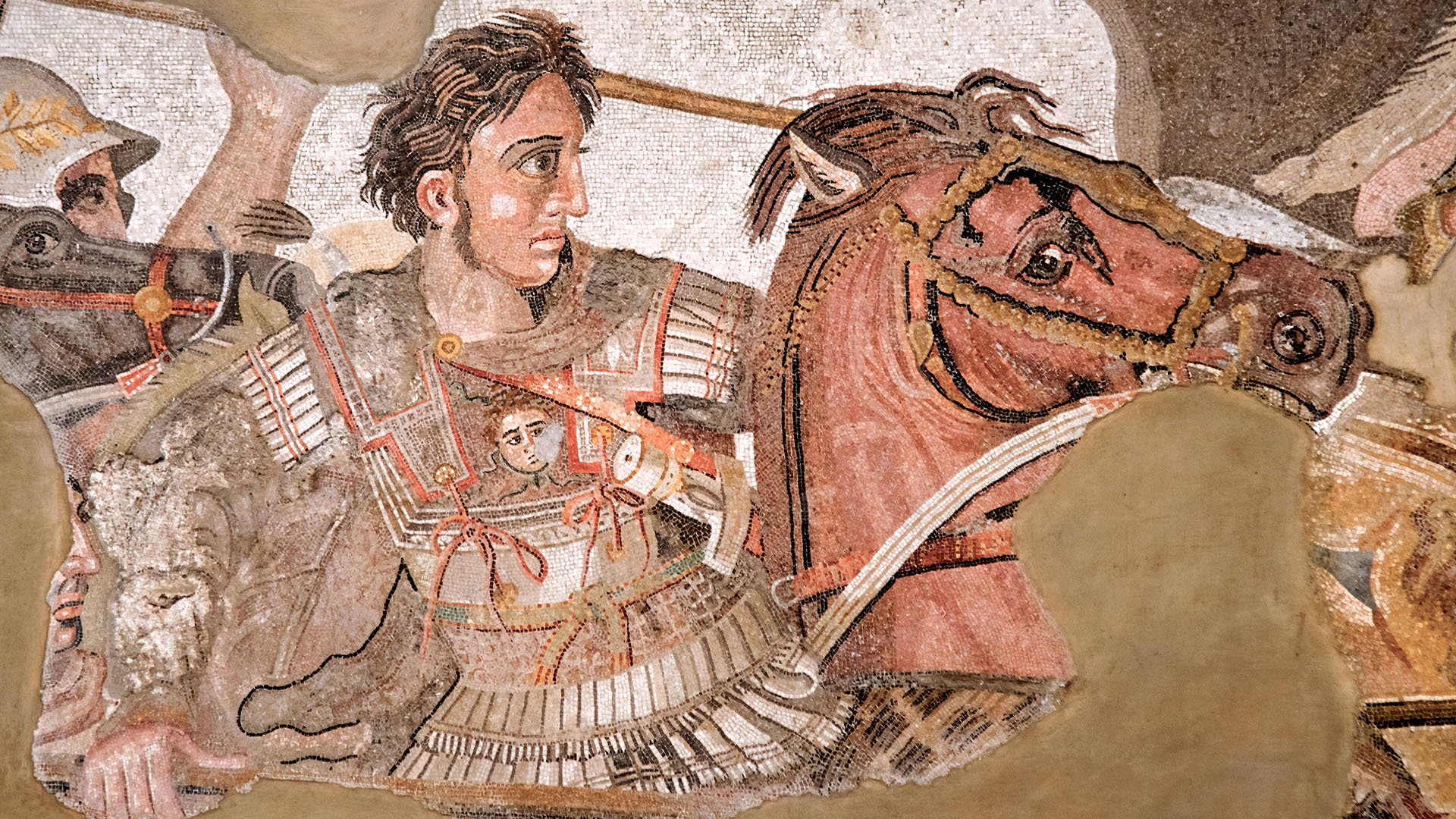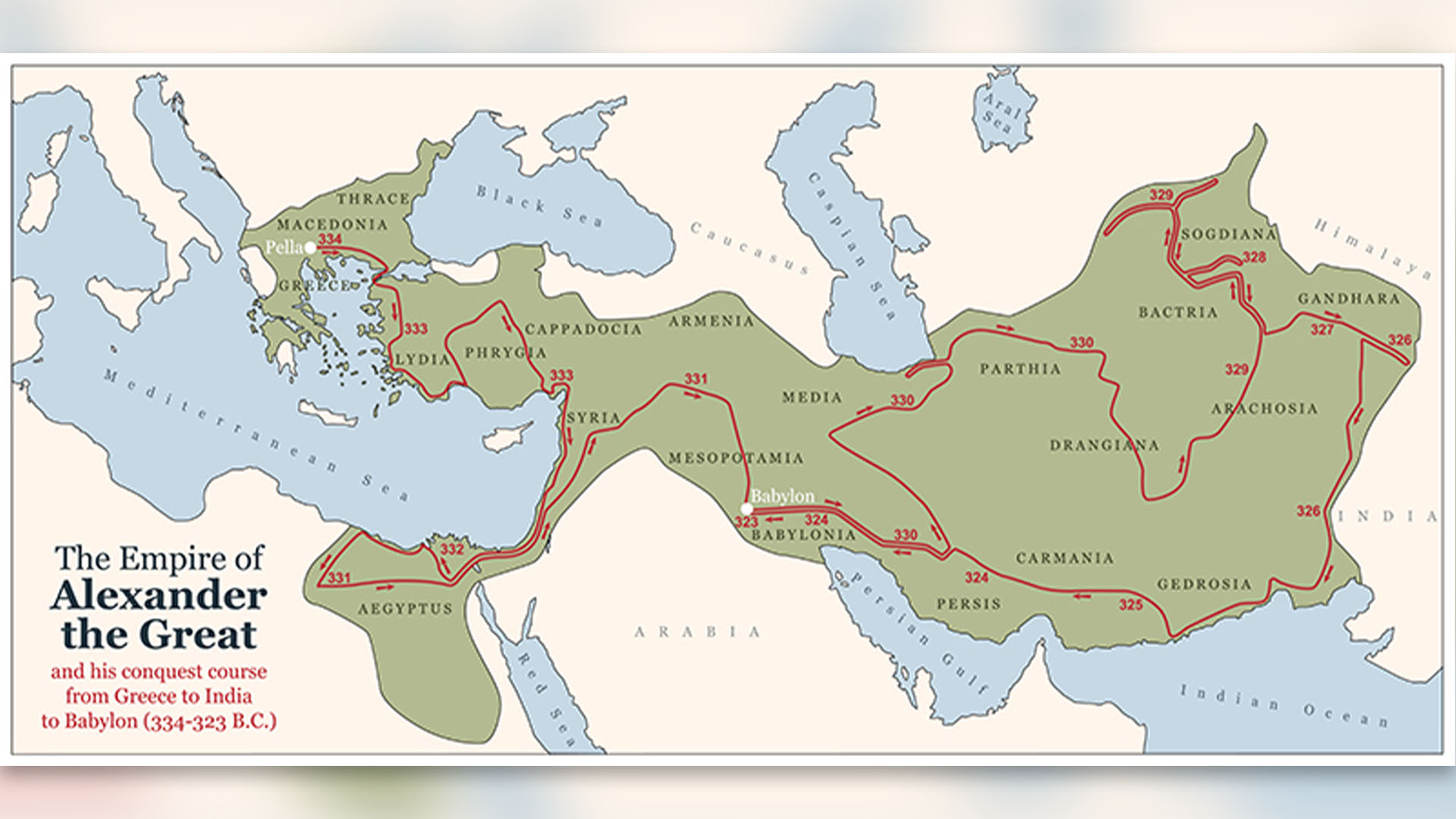
Alexander the Great conquered a massive empire that stretched from the Balkans to modern-day Pakistan. But if the Macedonian king had turned his attention westward, it's possible he would have conquered Rome, too, feasibly smiting the Roman Empire before it had a chance to arise.
So why didn't Alexander the Great try to conquer Italy? The answer may be that he died before he got the chance.
The king of Macedonia ruled from 336 B.C. to 323 B.C., when he died of an unknown illness in Babylon at age 32. Alexander's empire fell apart shortly after his death. Had he not died, however, it's possible that Alexander would have targeted Rome and, with his substantial forces, defeated the Eternal City.
Some ancient texts suggest that Alexander the Great was planning a military campaign in the West that involved conquering parts of Italy, among other locations along the Mediterranean. The Roman historian Quintus Curtius Rufus, who lived in the first century A.D., claimed that Alexander the Great had planned a series of conquests that, if successful, would have expanded his empire all the way to what is now the Strait of Gibraltar. Alexander planned to build 700 ships to support this invasion, Rufus noted. Other ancient writers made similar claims.
"The Romans were convinced that Alexander would have attempted the conquest of Rome, but for modern historians, it is impossible to say," Nikolaus Overtoom, an associate professor of history at Washington State University, told Live Science in an email.
Related: Where is Alexander the Great's tomb?
Some ancient writers claimed that after Alexander died, his secretary, Eumenes, gave one of Alexander's senior generals, Perdiccas, plans that included the conquest of part of Italy, Robin Waterfield, an independent scholar with a background in classics, told Live Science in an email.
"Now, some scholars believe that the [plans] are not genuine — perhaps a forgery by Eumenes, or perhaps the whole story arose years, even decades later," Waterfield said. However, "I think the balance of evidence is that they're genuine."
How would the invasion have gone?

It's ultimately unclear what would have happened if Alexander the Great had tried to invade Italy. The Romans were so strongly convinced that Alexander would have attempted the invasion that the historian Livy (lived circa 59 B.C. to A.D. 17) wrote a text speculating how the invasion would have ended, with Livy predicting that the Romans would have defeated Alexander. Livy noted that Alexander's uncle, Alexander I of Epirus, who ruled a kingdom of the same name, tried to conquer part of Italy but was killed in battle in 331 B.C.
Waterfield noted that descriptions of Alexander's plans indicate he would have invaded other locations in the Mediterranean before landing on the Italian mainland. This suggests that Alexander's forces would have been overwhelming, even if the Romans had any allies in their fight against him.
"By the time he reached Italy and faced the Roman Republic he would have had the resources of the entire Mediterranean at his command — a vast mercenary army, and he'd have commanded all the supply routes," Waterfield said. The "only thing that could have stopped him was internal rebellion or mutiny by his Macedonian troops."
Philip Freeman, a humanities professor at Pepperdine University in California, said that if Alexander had invaded Italy, he likely would have succeeded, noting that there were a number of Greek colonies in Italy that might have supported Alexander's rule.
"The Romans were tough and would have resisted, but they were not yet the powerful force of later centuries," Freeman told Live Science in an email. "If Alexander had invaded, I think there would have been no Roman Empire since Roman power would have been nipped in the bud, so to speak."







